
Bob Bailey & Virginia Gregg
Welcome to the Great Detectives of Old Time Radio! A podcast featuring the best vintage detective radio programs. Each week from Monday through Saturday, we feature six of Old Time Radio's great detective series from the beginning of the show to its very last episode. And as a bonus, twice a month we also post a public domain movie or TV mystery or detective show video.
Along the way, I'll provide you my commentary and offer you opportunities to interact.
Subscribe to the show by clicking your favorite podcatcher in the sidebar.
And don't forget to follow me on Twitter and become a fan on Facebook.
- Your host, Adam Graham
Listen to "The Great Detectives of Old Time Radio" on Spreaker.
Currently Featuring
YOURS TRULY, JOHNNY DOLLAR THE FALCON DANGEROUS ASSIGNMENT DRAGNET MR. CHAMELEON THIN MAN… and more!
View all shows
Check out our other shows:
Recent Posts
Golden Age Article
The Top Twenty-Five Dragnet Programs, Part Five
by Yours Truly Johnny Blogger • 0 Comments
Continued from: 10-6, 15-11, 20-16, 25-21.
5) The Big Meet
Original Air Date: October 26, 1950
This was perhaps the best of the classic Joe Friday undercover narcotics buy stories just because the risks were so outrageous. Going up to buy money from drug dealers and hoping to bluff your way through with a wad of cash mixed with newspapers and worth about 5% of what you’re paying is a tense enough situation particularly when much of the “cash” is newspaper. However, when it appears that the drug dealers have managed to lose your fellow officers tail, you’re looking a suspenseful classic.
Original Air Date: January 12, 1967
This episode is perhaps the most definitive episode of the 1960s Dragnet as it’s known by people who weren’t even into Dragnet. The show does a great job portraying how those who are charged with enforcing the law are often frustrated by the law when it failed to deal with an issue like LSD use. The episode is often known as the Blue Boy episode for the central suspect Benji Carver who first appears under influence of the drug with his face painted blue. The downbeat ending was beautifully done by Webb both from a directing and acting standpoint.
For some, this represented a hard hit back against the emerging counterculture. When Dragnet had left the air in 1959, it’d been a tired franchise worn out by nearly 600 radio and TV performance over the course of the decade. This episode began a new life with this episode as Friday re-emerged as the rock solid hero we needed in a time when everything was shifting including cherished values.
For many advocates of legalized drugs, this episode began a lifelong hate affair with Webb and Dragnet that continues to this day.
3) The City Hall Bombing/ The Human Bomb
Original Air Date: July 21, 1949 (Radio)
Original Air Date: December 16, 1951 (Television)
This story is quintessential Dragnet. A man holding a bomb is threatening to blow up city hall if the police don’t release his brother from county lock up and time is running out. Friday and Romero opt to try and stop the scheme at the risk of their own lives. The episode manages to mix the best elements of Dragnet: humanity, professionalism, and realistic danger and excitement. The end scene is a classic and sets the tone for the series. Too often, fictional cops were portrayed as almost superhuman or buffoons.The Human Bomb gives us a portrait of brave but cautious men who can make mistakes like everyone else. The story was great over radio and it was the perfect selection to lead off Dragnet over television in 1951.
2) Dragnet 1966
Original Air Date: January 27, 1969
From pure quality of the production, this may be the greatest Dragnet production ever. Friday returns from vacation early to investigate the disappearance of three missing women. This was a made for TV movie and it took full advantage of its length to create a fully fleshed out thriller with amazing twists and turns, and one of Joe Friday’s finest action moments ever.
The film provides the context through which Joe Friday is commonly understood It includes the dynamic, “Quirk in the Law” speech and Dragnet’s earliest attempts at taking on race relations. The suspect in that speech identifies Friday as an iconic figure when he calls him “the immortal sergeant..”
In addition to these dramatic features, Dragnet 1966 includes some great comic relief, most notably Virginia Gregg has the head of a matrimonial bureau. In addition, the impending retirement of Bill Gannon is a source of great comedy.
Sadly, this film is less well-known than it should be as it was not replayed often, wasn’t re syndicated with the 1960s Dragnet TV shows, and is only legally available as an extra on the Dragnet 1968/Season 2 DVD, so many Dragnet fans haven’t seen it. This is a pity as it is was a true classic.
Original Air Date: March 7, 1968
Dragnet is often accused of being a forum where Jack Webb pushed his political views. However, Dragnet’s ideas were not seen as all that political at the time. What we know of Webb’s personal politics is really quite limited. What we can say safely of Webb’s political beliefs was that he was anti-Communist, supportive of the Civil Rights movement, and pro-law enforcement. However, this episode provides a good view of Webb on America.
The episode tells of Friday and Gannon encountering a young gang of thieves who look down on society and plan to flee to island to start a just, peaceful, and moral nation. To this end, they begin robbing stores to acquire needed supplies and injuring anyone who stood in their way. (Irony alert.)
“The Big Departure” really was born of its times. The 1960s radicals, many of whom in one form or another urged young people to tune out. There were all types of opportunities to destructively turn away from a society with its troubles. There was the drug culture, hippy communes, and terrorist organizations like the Weather Underground, all of which urged people to tune out of traditional American processes and in many cases, to violate the laws of the land.
In “The Big Departure,” Friday and Gannon don’t bother arguing that America is perfect, rather they argue that its worthwhile and that the boys need to engage in life, not run away from it.
Webb understood what it was to be angry about injustice. When he was 26, he made a radio series, “One Out of Seven” that dealt with racial prejudice and intolerance. By 1968, the situation had begun to improve. But, this only happened because people worked to make things better, not escaping to a fantasy land.
At the core of Dragnet was a belief in the rule of law. The police officers were the good guys because they enforced the laws and made America work, giving democracy a chance to work. As Friday said, “Don’t try to build a new country. Make this one work. It has for over four hundred years; and by the world’s standards, that’s hardly more than yesterday.” That is the heart of the series.
If you enjoyed this post, you can have new posts about Detective stories and the golden age of radio and television delivered automatically to your Kindle.
1949-54 Johnny Dollar, CBS, Podcast, Yours Truly Johnny Dollar
EP0883: Yours Truly Johnny Dollar: The Jan Brueghel Matter
by Yours Truly Johnny Blogger • 0 Comments
Podcast: Play in new window | Download
Subscribe: Apple Podcasts | Spotify | Amazon Music | iHeartRadio | Email | TuneIn | RSS
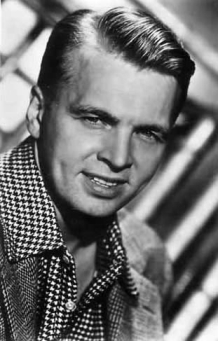
Johnny goes to pay $25,000 to obtain the return of a stolen painting the company made more than $100,00 for. But did he get the real painting or a forgery.
Original Air Date: July 6, 1954
Save more and combine hotel and airline fare at http://www.johnnydollarair.com
Become one of our friends on Facebook…http://www.facebook.com/radiodetectives
Take the listener survey at http://survey.greatdetectives.net
Click here to download, click here to add this podcast to your Itunes, click here to subscribe to this podcast on Zune, click here to subscribe to this feed using any other feed reader
Mutual, Podcast, Sherlock Holmes, Sherlock Old Time Radio
EP0882: Sherlock Holmes: The Adventure of the Red Death
by Yours Truly Johnny Blogger • 1 Comment
Podcast: Play in new window | Download
Subscribe: Apple Podcasts | Spotify | Amazon Music | iHeartRadio | Email | TuneIn | RSS
A pyromaniac has been unleashed on London and Holmes has to find him.
Original Air Date: June 6, 1949
Take our listener survey: http://survey.greatdetectives.net
Become one of our friends on Facebook… http://www.facebook.com/radiodetectives
Click here to download, click here to add this podcast to your Itunes, click here to subscribe.
Let George Do It, Mutual, Podcast
EP0881: Let George Do It: Chance and Probability
by Yours Truly Johnny Blogger • 0 Comments
Podcast: Play in new window | Download
Subscribe: Apple Podcasts | Spotify | Amazon Music | iHeartRadio | Email | TuneIn | RSS
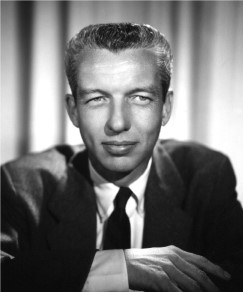
George travels to a casino resort where a man was killed for his perfect “system” for winning at the casino.
Original Air Date: September 29, 1952
Take our listener survey…http://survey.greatdetectives.net
Become one of our friends on Facebook… http://www.facebook.com/radiodetectives
Call 208-991-4783 to leave a voicemail.
Click here to download, click here to add this podcast to your Itunes, click here to subscribe to this podcast on Zune, click here to subscribe to this feed using any other feed reader.
A Life in Your Hands, Gentlemen Detectives, NBC, Podcast
EP0880: A Life in Your Hand: Captain Mendosa’s Treasure
by Yours Truly Johnny Blogger • 0 Comments
Podcast: Play in new window | Download
Subscribe: Apple Podcasts | Spotify | Amazon Music | iHeartRadio | Email | TuneIn | RSS
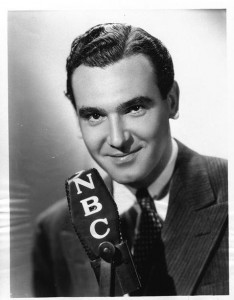
A man claiming to have a treasure map is murdered and a socialite is charged with the crime
Rehearsal of program that aired: August 14, 1952
Become one of our friends on Facebook… http://www.facebook.com/radiodetectives
Take the listener survey at http://survey.greatdetectives.net
Give us a call 208-991-4783
Follow us on Twitter @radiodetectives
Click here to download, click here to add this podcast to your Itunes, click here to subscribe to this podcast on Zune, click here to subscribe to this feed using any other feed read.
Frank Race, Podcast, Syndicated
EP0879: Frank Race: The Adventure of the Silent Tongue
by Yours Truly Johnny Blogger • 0 Comments
Podcast: Play in new window | Download
Subscribe: Apple Podcasts | Spotify | Amazon Music | iHeartRadio | Email | TuneIn | RSS
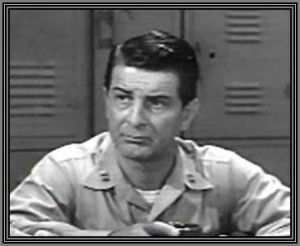
Frank Race agrees to meet the last request of a man on death row and retrieve a pair of baby shoes from a safe deposit box. He’s shocked to be ambushed by three armed women.
Original Air Date: October 8, 1949
Support our listener support campaign: http://support.greatdetectives.net
Become one of our friends on Facebook… http://www.facebook.com/radiodetectives
Take the listener survey at http://survey.greatdetectives.net
Give us a call 208-991-4783
Follow us on Twitter @radiodetectives
Click here to download, click here to add this podcast to your Itunes, click here to subscribe to this podcast on Zune, click here to subscribe to this feed using any other feed reader.
Golden Age Article
Radio’s Most Essential People Countdown: #14-13
by Yours Truly Johnny Blogger • 4 Comments
Previous Posts: 16-15, 18-17, 20-19,22-21, 24-23, 26-25, 28-27, 30-29, 33-31, 36-34, 39-37,
42-40, 45-43, 48-46, 51-49, 54-52, 57-55, 60-58, 65-61, 70-66, 71-75, 76-80, 81-85, 86-90, 91-95, 96-100
14) Burns and Allen:
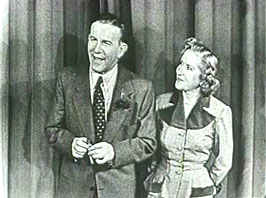 Burns and Allen remain one of the most successful and memorable husband-wife comedy teams of all time. Their performances on radio began in the mid-30s with those that were variety radio programs . The programs featured an announcer, band leader, and various character actors and the whole act was doing the show with plot contrivances thrown in usually centered on a rivals as their characters remained single even after they’d been married.
Burns and Allen remain one of the most successful and memorable husband-wife comedy teams of all time. Their performances on radio began in the mid-30s with those that were variety radio programs . The programs featured an announcer, band leader, and various character actors and the whole act was doing the show with plot contrivances thrown in usually centered on a rivals as their characters remained single even after they’d been married.
These programs weren’t bad and they did show aspects of their talent that were not apparent in later shows. For example, Gracie Allen sang, and George Burns sang before entering a decade of pretending to not be able to carry a tune.They showed Gracie’s zaniness found plenty of outlets. Most famously, in 1940 on their Hormel program, she staged a run for President on the “Surprise Party” ticket while on the Hinds and Honey Almond show. However, the light banter and romantic rivalry plots just didn’t work anymore. At 45, Burns realized the couple was simply too old for it, so for the 1941-42 season for their new show on Swan, Burns and Allen became a sitcom with musical interludes. Singer Jimmy Cash and Orchestra leader Paul Whiteman still did some acting in addition to their singing, but receded into the background after the first season as far as the plot went.
The show became a home to a variety of characters. Clarence Nash (who voiced Donald Duck) featured in the first couple of seasons as a talking pet duck named Herman, and during the Swan Years Mel Blanc would portray the happy postman whose happy words were contradicted by his dour voice tone. When the show was sponsored later by Maxwell Coffee, Gale Gordon would play a Texas Oil Millionaire, with Elliot Lewis as a manic depressive man who swung from euphoria to rage at every job he had, and Hans Conreid as a psychiatrist who was the Burns’ next door neighbor. Bill Goodwin remained the commercial spokesman, extra comic, and absurdly successful lady’s man.
The highlight of course was Gracie and George. With Gracie’s unimitable style and delivery, she was to 1940s radio what Lucille Ball would be to 1950s television, relying on her zaniness and timing to create fantastic situations. George Burns was the perfect straight man for Gracie and guests with perfect pitch reactions.
The couple left radio for television in 1950, but they’d left an indellible mark in their nine seasons in the sitcom format.
13) Bob Bailey
 Bob Bailey did some of his best work in relative obscurity. He performed from 1946 into the mid-1950s as detective George Valentine in Let George Do It in a series that was a West Coast only production of the Don Lee mutual network, helping to bring to life the stories of up and coming writers such as Jackson Gillis. Outside of this, his radio work up until 1955 was mostly a slew of character roles on such reliable sources of such work as Cavalcade of America and Lux Radio Theater. However, in October 1955, he made his most lasting mark on radio when he became the fourth on-air Johnny Dollar.
Bob Bailey did some of his best work in relative obscurity. He performed from 1946 into the mid-1950s as detective George Valentine in Let George Do It in a series that was a West Coast only production of the Don Lee mutual network, helping to bring to life the stories of up and coming writers such as Jackson Gillis. Outside of this, his radio work up until 1955 was mostly a slew of character roles on such reliable sources of such work as Cavalcade of America and Lux Radio Theater. However, in October 1955, he made his most lasting mark on radio when he became the fourth on-air Johnny Dollar.
The radio detective series had been on the wane as a genre for years after its heyday in the late 40s and early 50s. Long time detective franchises such as Dragnet and Barrie Craig had packed it in at the end of their 1954-55 seasons. However, after more than a year off the air, CBS re-launched Yours Truly Johnny Dollar as a five day a week serial on October 3, 1955 with Bailey winning the title role.
There were many things that made the show a success, but Bailey was the key. He was the perfect Johnny Dollar. He could be tough as his Johnny Dollar predecessor Edmond O’Brien, he could be more tender than John Lund, and he could generate excitement as he told listeners what they could expect in tomorrow’s installment. While the Yours Truly Johnny Dollar scripts were often reused and expanded stories from other golden age shows of the 1940s. However, the scripts were well-expanded, and Bailey made every episode a joy.
The serial format lasted for more than a year, but Bailey continued to appear in weekly 30 minute episodes for another four years before the show moved to New York with Bailey opting to stay close to his family. The series continued for 22 months, and successive Johnny Dollar actors were highly influenced by Bailey’s performance.
For people who grew up in the mid-to-late 1950s, he was the radio detective as they never heard Philip Marlowe or Michael Shayne. The radio detective genre had run itself to the ground through over-saturating the market, while also competing with the rise of television. The amazing thing about Bailey’s Johnny Dollar is that despite these factors, it became a success.
If you enjoyed this post, you can have new posts about Detective stories and the golden age of radio and television delivered automatically to your Kindle.
Share this:
- Click to share on Facebook (Opens in new window)
- Click to share on Twitter (Opens in new window)
- Click to share on Pinterest (Opens in new window)
- Click to share on LinkedIn (Opens in new window)
- Click to share on Reddit (Opens in new window)
- Click to share on Tumblr (Opens in new window)
- Click to email a link to a friend (Opens in new window)
- Click to print (Opens in new window)




